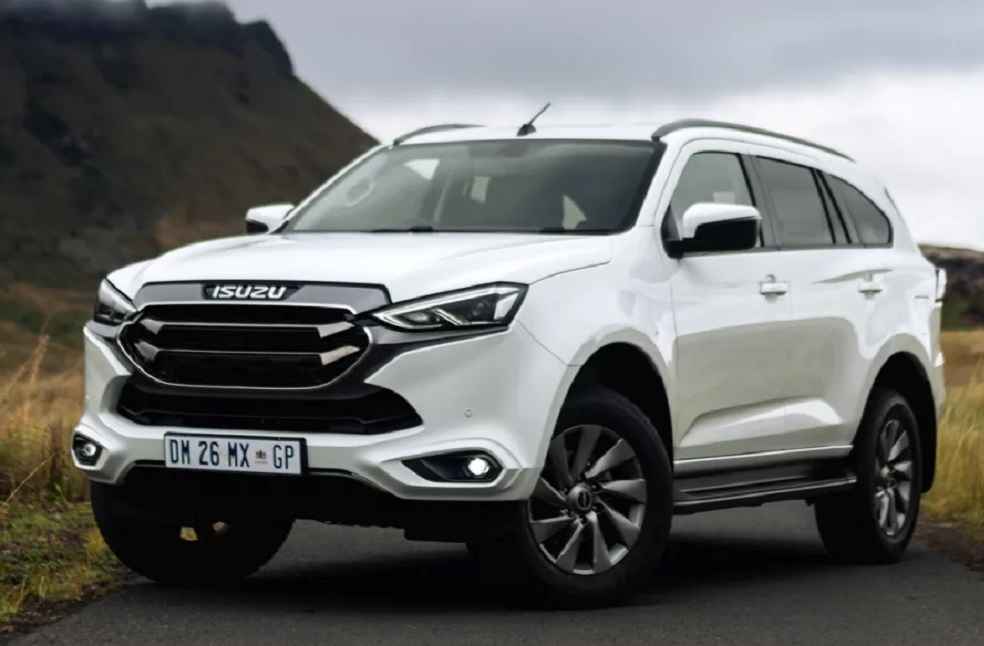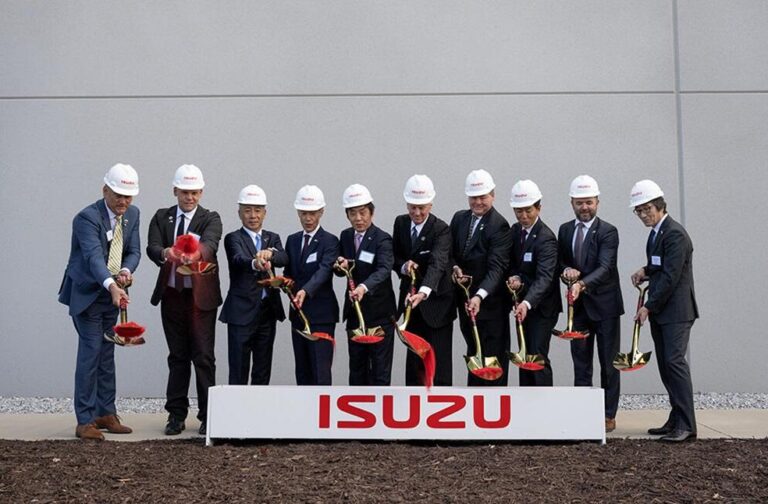Japanese truck manufacturer Isuzu Motors accelerated its North American expansion plans on Wednesday by launching construction of a new manufacturing facility in South Carolina.
The company held a ceremony for the facility, signaling its intent to bolster its position in the North American truck market and reduce reliance on vehicle exports from Japan.
Initially revealed in February, the plant is expected to begin operations in 2027. Isuzu is investing US$280 million into the facility, which will manufacture both battery-electric and diesel-powered N-series and F-series trucks, with plans to employ around 700 people by 2028. The plant will be managed by Isuzu’s fully owned U.S. subsidiary, Isuzu North America Corporation (INAC).
The company aims to achieve an annual output of 50,000 trucks by 2030.
“This Greenville plant will be essential to advancing strategy here in the U.S.,” said Masanori Katayama, chairman and CEO of Isuzu Motors.

Since firmly establishing its presence in the North American market in 1984, Isuzu has recorded steady sales growth, exceeding 40,000 units in fiscal 2023—a record high for the company. Masanori Katayama also expressed confidence that the Japanese automaker can compete effectively with rivals, citing the vast potential of the market.
Isuzu currently manufactures its N-Series Gas, N-Series EV, and F-Series Diesel trucks in Charlotte, Michigan, through a collaboration with The Shyft Group. Although Shaun Skinner, president of Isuzu Commercial Truck of America, praised the longstanding partnership with Shyft, he noted that Isuzu has outpaced Shyft’s production capabilities, with parts now being stored in various locations around the town.
The upcoming facility, however, will be fully owned and operated by Isuzu, allowing the company greater flexibility and full control over its manufacturing processes.

According to Murakami, the presence of several manufacturing plants in the region influenced the decision to establish the new facility in South Carolina. Meanwhile, U.S. President Donald Trump had declared plans to impose a 25% tariff on large truck imports. Although Isuzu is unlikely to be affected, since its product lineup primarily consists of small and medium-sized trucks, Katayama noted that the company is currently seeking clarification from U.S. authorities on how ‘large trucks’ are officially defined.





